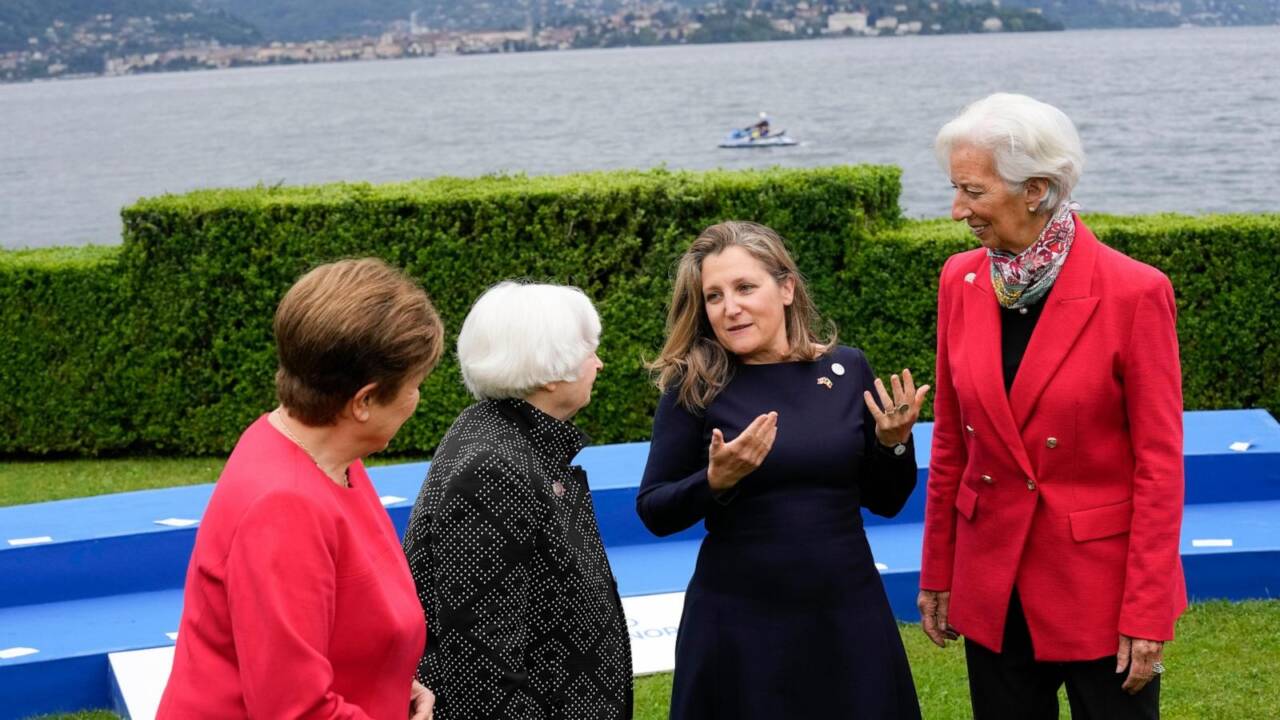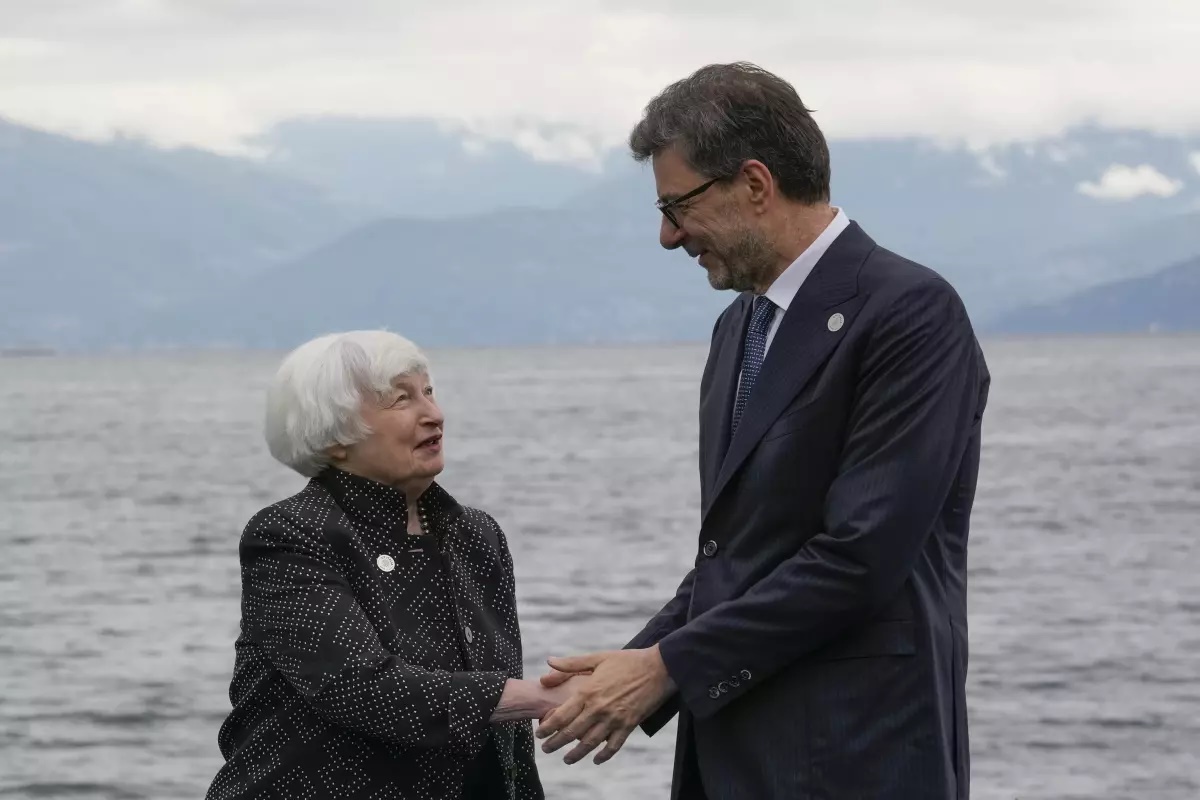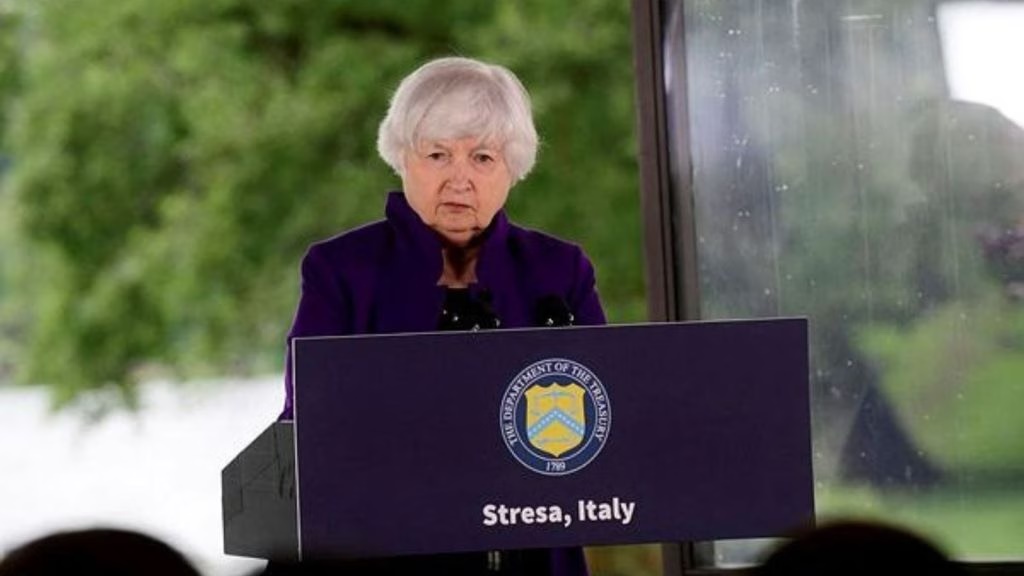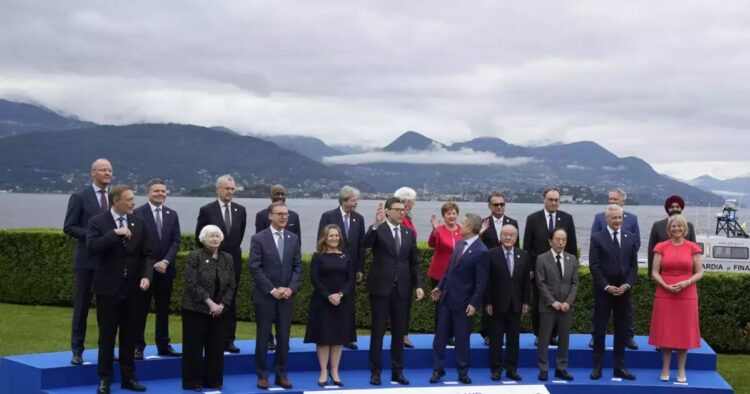As finance ministers from the Group of Seven (G7) gathered for a two-day meeting in Stresa, Italy, US Treasury Secretary Janet Yellen advocated for stronger measures to release funds from around $260 billion in Russian central bank reserves frozen in Europe and the US since Russia’s invasion of Ukraine on February 24, 2022.
The urgency for aid to Ukraine has escalated as the conflict persists and Russia intensifies its attacks on civilian infrastructure.

With Kyiv’s finances under strain, the US Congress has passed legislation enabling the Biden administration to seize approximately $5 billion in Russian assets within the US. However, the bulk of these funds are held in Europe.
European officials have been cautious about outright confiscation due to legal concerns. Instead, they propose utilizing the interest accrued on the frozen assets, amounting to roughly $3 billion annually.

However, this falls short of Ukraine’s substantial financial needs. Alternative suggestions include leveraging future interest income to provide Ukraine with immediate support, potentially amounting to $50 billion.
Italian Finance Minister Giancarlo Giorgetti acknowledged the complexity of extracting additional funds for Ukraine, citing legal and political sensitivities. French Finance Minister Bruno Le Maire commended Yellen for adjusting proposals to align with international law. He emphasized the importance of determining the most efficient means of supporting Ukraine’s government financially.

Ukraine faces mounting expenses, with nearly all tax revenue allocated to military spending. An additional $40 billion annually is required to cover essential services such as pensions, healthcare, and education.
While support from allies and a $15.4 billion loan from the International Monetary Fund initially bolstered Ukraine’s budget for four years, the prospect of prolonged conflict has cast uncertainty over future financial stability.
Yellen also urged G7 unity in addressing China’s state subsidies, particularly in industries like solar panels, semiconductors, and electric cars. She warned that China’s overcapacity threatens global markets and the competitiveness of companies worldwide.
Ahead of the G7 summit scheduled for June 13-15 in Fasano, Italy, finance ministers aim to finalize decisions on these critical issues.
The G7, comprising Canada, France, Germany, Italy, Japan, the United Kingdom, and the United States, serves as an informal platform for discussions on economic policy and security matters. While the European Union participates, it does not hold a rotating chair within the group.

















Comments